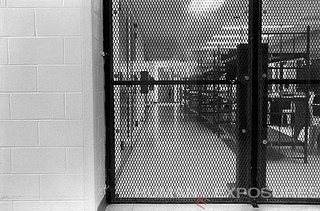Until recently, Nebraska juveniles who committed offenses were being tossed en masse into confinement, even though a large portion of the youths could be helped through alternative treatment at far lower costs.
Especially disturbing was the situation at the juvenile center for boys at Kearney, where nonviolent youths were housed in a huge common area with violent youths, and the assault rate on staff personnel exceeded that of the state correctional system.
Staff turnover was high both at the Kearney center and the one for girls at Geneva. Conditions at the two centers were impeding the system’s ability to provide rehabilitation, which was the reason for establishing the two facilities.
The good news, witnesses explained to the state legislature in 2012, is that sensible reform is possible. It has worked effectively in Douglas County and various other states. A shift toward treatment in Texas, for example, allowed that state to cut $117 million from its juvenile justice budget and close three detention centers. Savings of $45 million were returned to county governments to provide community services.
The cost differences between treatment and confinement are great. It costs around $260 a day to house a young person at the Kearney center, compared with around $65 for treatment at a group home, lawmakers learned. A pilot project in Douglas County emphasizing treatment kept 83 percent of juvenile offenders in their homes over nearly a four-year period, and three-fourths completed probation successfully.
Given these facts, the Nebraska Legislature and Gov. Dave Heineman adopted major changes, assigning the Office of Probation Administration authority to handle juvenile justice cases. The state is now two months into that reform effort.
Passage of Legislative Bill 561 moved all supervision of delinquent juveniles from the Department of Health and Human Services’ (DHHS) Office of Juvenile Services (OJS) to Nebraska’s Office of Probation Administration. Along with that came $14.5 million to be spent on new services for youth along with a grant program to aid counties focusing on the developing of front-end services for youth. The changes are intended to decrease the dependency on juvenile detention center stays, place more emphasis on rehabilitation, increase family engagement and provide more services at the community level.
Even at this early stage, the number of youths imprisoned at the two juvenile centers has declined: 92 boys now at Kearney compared with 135 a year ago, and 52 girls at Geneva, down from 66 a year ago.
Just over 80 percent of juveniles supervised by probation are being helped at home, up from 40 percent a year ago, when the state’s Department of Health and Human Services was handling the cases.
However, the state faces challenges. Sometimes complications arise when parents of probation youth refuse to cooperate. Another challenge is when the state HHS has to handle juvenile cases involving youths with severe mental health needs or developmental disabilities.
Some problems can be addressed through changes in procedure, state statute and/or budget appropriations. More state funding will be required to start or increase local treatment services. This is also true for reimbursing county governments for their costs involved in juvenile justice matters, such as transportation. State lawmakers will need to examine the options on information-sharing to ensure that juvenile probation cases are properly monitored and analyzed.
In addition, the Nebraska Crime Commission has added two new positions to oversee the Community Based Aid funding and Diversion services statewide. Community Based Aid replaced has increased funding to $5 million.
Change of this magnitude can be difficult, but the state’s system stakeholders have been working collaboratively to provide training, interpretation, development of services and most importantly seamless transition of services for youth and their families.
An editorial in the Omaha World-Herald declared:
Putting Nebraska’s juvenile justice system on a new path was a sound decision. With appropriate follow-up, this reform should bring significant benefits to the youths and the state.










